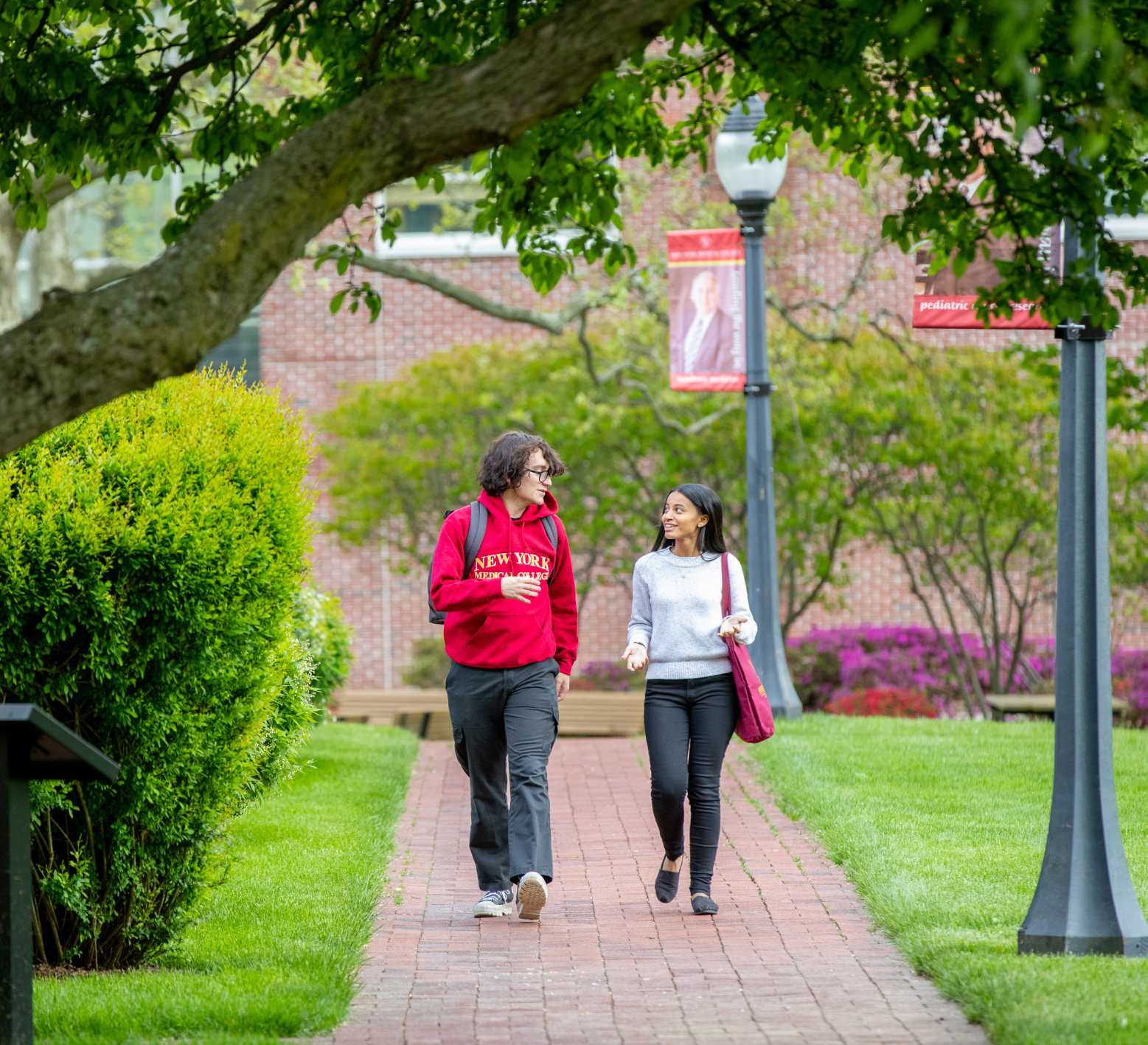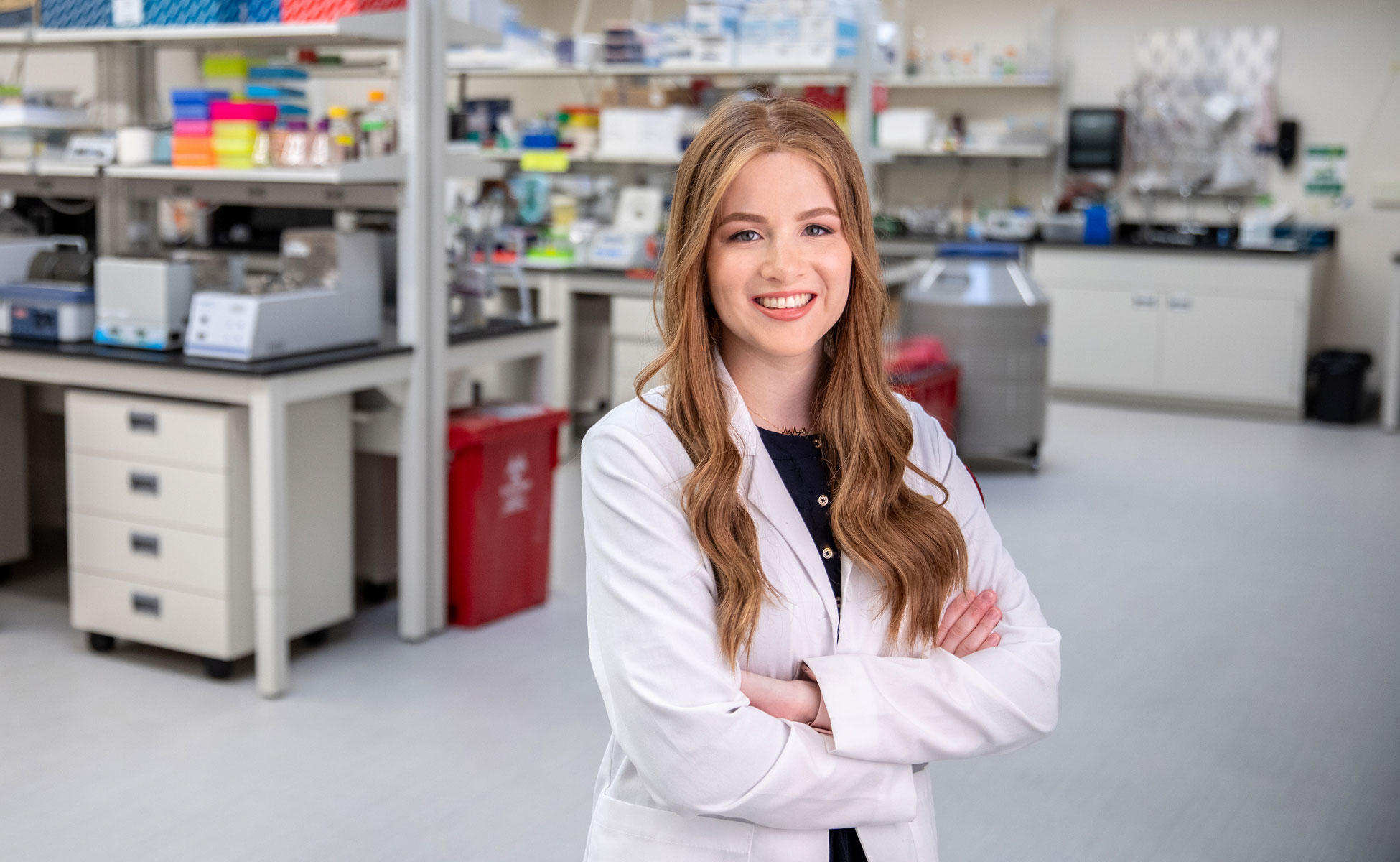We encourage students to be involved in as many activities as possible – social, recreational, religious/spiritual, and athletic – as they complement the academic experience and help to reduce stress.
Student Organizations and Activities
The Graduate Student Association (GSA) is an integral component of the GSBMS. Officers are elected annually and participate in a vibrant program including student advocacy on a variety of social, academic, and professional issues relevant to the graduate student members. The GSA organizes the annual Graduate Student Research Forum, hosts social functions, advocates for the needs and interests of Graduate School students, and coordinates community service projects that build strong links between the school and its neighbors. Visit NYMC’s Student Organizations page for a list of college-wide clubs and activities.
Graduate Student Association (GSA)
Contact: gsa@nymc.edu
GSA Officers 2024-2025
- President: Rahim Hirani (M.D.-Ph.D.)
- Vice President: Sara Muharremi, Biomedical Sciences (M.S.)
- Chair of the Graduate Student Research Forum: Madison Spears (Integrated Ph.D.)
- Vice Chair of the Graduate Student Research Forum: Jermaine Cail, Biomedical Sciences (M.S.)
- Chair of Community Building: Neha Ali, Interdisciplinary Biomedical Sciences (M.S.)
- Treasurer: Johalmo Lemus, Biomedical Sciences (M.S.)
- Secretary: Grace Solomon (Integrated Ph.D.)
- Program Ambassadors:
- PhD: Yolanda YuBing Shen, Cell Biology- Integrated Ph.D. (Ph. D.); and Comfort Williams, Integrated Ph.D. (Ph. D.)
- AMP: Jack Rosenthal, Accelerated Interdisciplinary Biomedical Sciences (M.S.)
- BMS: Rebecca Juste, Biomedical Sciences (M.S.)
- Faculty Advisor, GSA: Carl I. Thompson, Ph.D. - Department of Physiology
- Faculty Advisor, Forum: John T. Pinto, Ph.D. - Department of Biochemistry and Molecular Biology
Ph.D. Representatives 2024-2025
These elected students represent their respective Ph.D. programs and serve as a link between the Ph.D. students and faculty and administration of the GSBMS, providing enhanced communication of important issues concerning Ph.D. activities. In addition, they are involved in planning various events, such as Ph.D. student colloquia, Graduate Student Research Forum, and the production of the Ph.D. student newsletter “The Transcript.” Elections are held annually in September.
- Cell Biology: Morgan Anderson-Crannage
- Microbiology & Immunology: Kaci Kopec
- Pathology: Mia Camilliere
- Biochemistry: OPEN
- Physiology: Saqlain Javed
- Pharmacology: Christina Signoretti
- New Students: Comfort Williams
Research Opportunities
Laboratory research underlies all the disciplines represented in GSBMS, and an understanding of the modern scientific method is a basic learning objective that is common to all our programs. Our faculty comprises experienced investigators who provide practical lab experience and mentoring to Graduate School students.
Conducting scientific research is, of course, a requirement for all Ph.D. and M.D.-Ph.D. students from the beginning of their program. These students will rotate through several labs before choosing a sponsor and topic for their dissertation research. For M.S. students, however, undertaking a research project is encouraged but not required. Students completing our master’s programs have two options: composing a thesis based on original research or writing a literature review. Even if a student chooses the literature review option, we believe it is worthwhile to do a short-term (summer or semester) lab rotation in order to gain valuable hands-on experience “at the bench.” The skills and knowledge gained through research work enhance and extend classroom learning and prepare students for a broader range of career options.
Graduate School students can choose to work with any of our active faculty investigators, representing the following disciplines: biochemistry and molecular biology, cell biology, pathology, microbiology and immunology, pharmacology, and physiology.
Lab Coat Ceremony
Inaugurated in 2021, the Graduate School of Biomedical Sciences (GSBMS) Lab Coat Ceremony is a biennial event led by distinguished faculty to mark a significant milestone in the academic journey of Ph.D. candidates. When you don your lab coats for the first time, you symbolically embrace the responsibilities and goals of scientists and the noble profession you have chosen signifying your dedication to scientific excellence and ethical practice. At the end of the ceremony, doctoral candidates recite the Graduate Student Code, affirming your commitment to ethical conduct.
GSBMS Hosts Biennial Ph.D. Lab Coat Ceremony
Second- and Third-Year Ph.D. Students and the New M.D./Ph.D. Students Celebrated Joyfully with Families in Attendance
Community Involvement
New York Medical College believes in active learning. Our commitment goes beyond merely equipping future healthcare professionals with specialized knowledge; we also emphasize hands-on training within the very communities they are destined to serve.

Pre-clinical students at the GSBMS are encouraged to volunteer at WMC, Maria Fareri Children’s Hospital, and other medical facilities, and many actively participate in these opportunities.
Housing, Dining and Well-Being
As a Graduate School of Biomedical Sciences student, you have access to NYMC-wide services. Learn about NYMC’s housing, dining, and wellness services.


